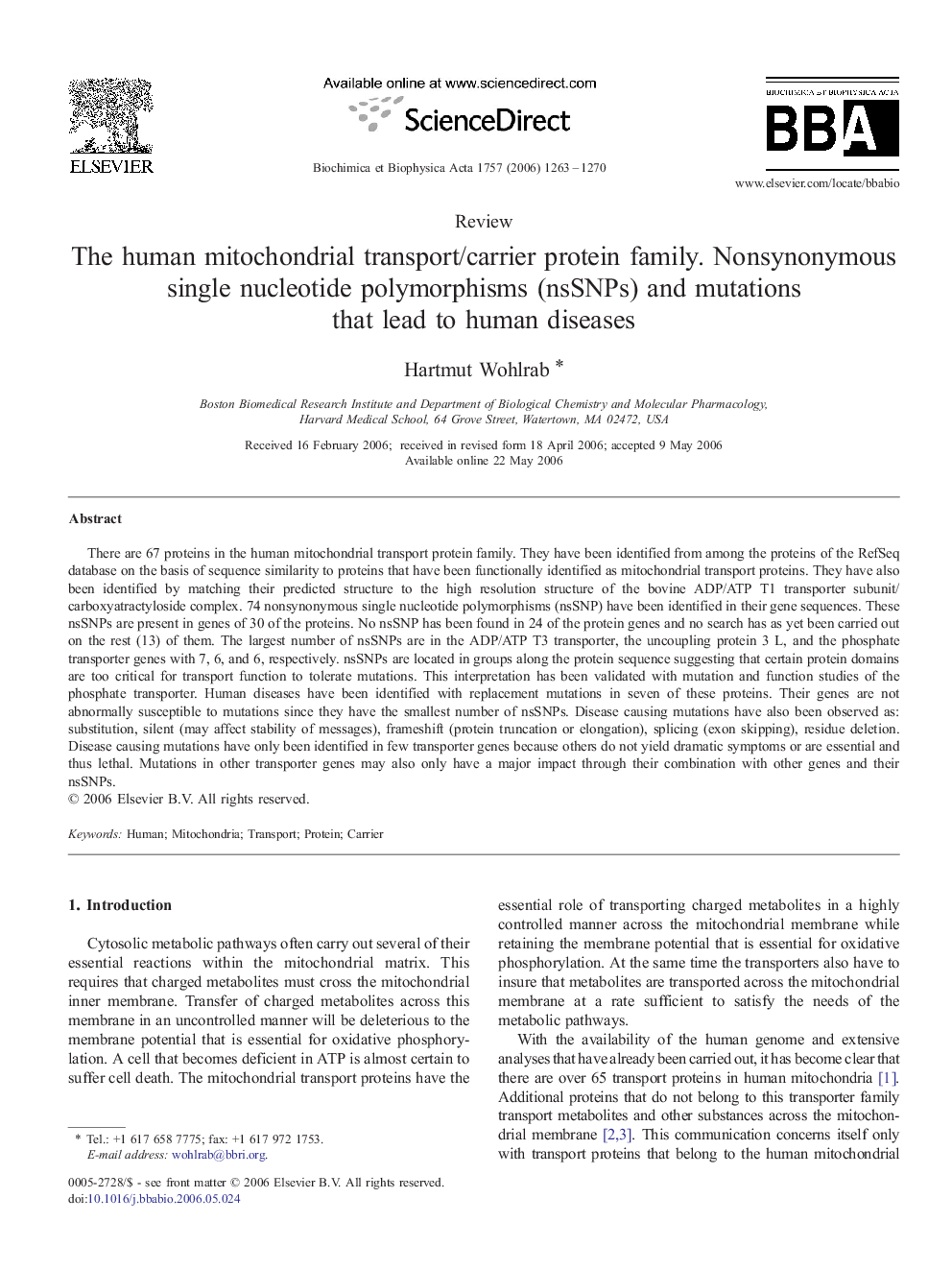| کد مقاله | کد نشریه | سال انتشار | مقاله انگلیسی | نسخه تمام متن |
|---|---|---|---|---|
| 1943829 | 1537055 | 2006 | 8 صفحه PDF | دانلود رایگان |
عنوان انگلیسی مقاله ISI
The human mitochondrial transport/carrier protein family. Nonsynonymous single nucleotide polymorphisms (nsSNPs) and mutations that lead to human diseases
دانلود مقاله + سفارش ترجمه
دانلود مقاله ISI انگلیسی
رایگان برای ایرانیان
کلمات کلیدی
موضوعات مرتبط
علوم زیستی و بیوفناوری
علوم کشاورزی و بیولوژیک
دانش گیاه شناسی
پیش نمایش صفحه اول مقاله

چکیده انگلیسی
There are 67 proteins in the human mitochondrial transport protein family. They have been identified from among the proteins of the RefSeq database on the basis of sequence similarity to proteins that have been functionally identified as mitochondrial transport proteins. They have also been identified by matching their predicted structure to the high resolution structure of the bovine ADP/ATP T1 transporter subunit/carboxyatractyloside complex. 74 nonsynonymous single nucleotide polymorphisms (nsSNP) have been identified in their gene sequences. These nsSNPs are present in genes of 30 of the proteins. No nsSNP has been found in 24 of the protein genes and no search has as yet been carried out on the rest (13) of them. The largest number of nsSNPs are in the ADP/ATP T3 transporter, the uncoupling protein 3Â L, and the phosphate transporter genes with 7, 6, and 6, respectively. nsSNPs are located in groups along the protein sequence suggesting that certain protein domains are too critical for transport function to tolerate mutations. This interpretation has been validated with mutation and function studies of the phosphate transporter. Human diseases have been identified with replacement mutations in seven of these proteins. Their genes are not abnormally susceptible to mutations since they have the smallest number of nsSNPs. Disease causing mutations have also been observed as: substitution, silent (may affect stability of messages), frameshift (protein truncation or elongation), splicing (exon skipping), residue deletion. Disease causing mutations have only been identified in few transporter genes because others do not yield dramatic symptoms or are essential and thus lethal. Mutations in other transporter genes may also only have a major impact through their combination with other genes and their nsSNPs.
ناشر
Database: Elsevier - ScienceDirect (ساینس دایرکت)
Journal: Biochimica et Biophysica Acta (BBA) - Bioenergetics - Volume 1757, Issues 9â10, SeptemberâOctober 2006, Pages 1263-1270
Journal: Biochimica et Biophysica Acta (BBA) - Bioenergetics - Volume 1757, Issues 9â10, SeptemberâOctober 2006, Pages 1263-1270
نویسندگان
Hartmut Wohlrab,